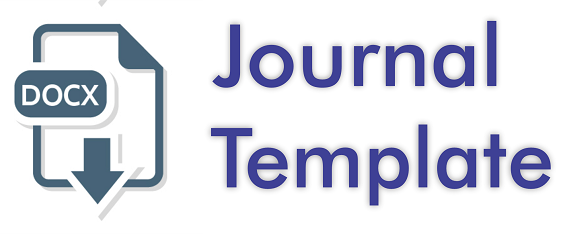Strategi Pemasaran Dalam Meningkatkan Jumlah Nasabah Produk Pembiayaan Pensiun PT. BSI KCP Lubuk Basung
DOI:
https://doi.org/10.59107/ri.v3i2.94Keywords:
Marketing Strategy, SWOT Analysis, Pension Financing ProductsAbstract
The growth of pension financing product customers at PT. BSI KCP Lubuk Basung from 2021-2023 has increased, but the difference in the number of customers per year is relatively small and the total contract value per year has not reached the target. Therefore, the study aims to develop a strategy to be implemented by PT. BSI KCP Lubuk Basung in increasing the number of pension financing product customers. In an increasingly competitive context, where various financial institutions offer similar products and are located in adjacent areas, the right approach is needed to win market competition. This study uses a quantitative descriptive method with a field approach to observe the phenomena that occur at the research location. Data collection was carried out through observation, interviews, and documentation. The data analysis techniques applied include SWOT analysis, IFE and EFE matrix analysis, and SWOT matrix analysis and score weighting. Based on the analysis carried out, certain strategies can be implemented by PT. BSI KCP Lubuk Basung to significantly increase the number of pension financing product customers by using the SO strategy, namely developing pension financing products by utilizing available technology and relying on skilled human resources. Increase promotion through various media and direct socialization (door-to-door). Improve the quality of service to customers with professional service. Strengthen the brand while maintaining its sharia values as the main identity.
Downloads
References
Abdhad, M. K. A. A. (2019). Analisis Strategi Pemasaran Pada Bri Syariah Banjarbaru. Jurnal Ilmiah Ekonomi Bisnis, 5(1), 118–128. https://doi.org/10.35972/jieb.v5i1.263
Achta Pratama, F. (2022). Analisis Peran Pendidikan Vokasi Dalam Pengembangan Industri Halal di Indonesia. Risalah Iqtisadiyah: Journal of Sharia Economics, 1(1), 1–7. https://doi.org/10.59107/ri.v1i1.22
Bundo, M., & Pratama, F. A. (2024). Analysis of Sharia-Based Hotels on Sustainable Tourism in West Sumatera Indonesia. Journal of Islamic Economics and Finance Studies, 5(1), 173–191. https://doi.org/10.47700/jiefes.v5i1.7378
Cipta, H. (2020). Analisis SWOT: Integrasi Industri Halal dan Perbankan Syariah di Indonesia. Shiddiq Press.
Fauzi, A. (2008). Sistem Pembiayaan Jaminan Sosial. Gramedia.
Fawzi, H., & M, G. (2021). Strategi Pemasaran: Konsep, Teori, dan Implementasi. Pascal Books.
Kasmir. (2016). Bank dan Lembaga Keuangan Lainnya. Universitas Indonesia.
Porter, M. E. (1985). Keunggulan Kompetitif: Menciptakan dan Mempertahankan Kinerja Unggul. Free Press.
Pratama, F. A. (2022). Relevansi Pengetahuan Dengan Pencegahan Covid-19 di Masyarakat. Jurnal Ekologi, Masyarakat Dan Sains, 3(1), 21–26. https://doi.org/10.55448/ems.v3i1.41
Pratama, F. A., & Effendi, H. (2021). E-Learning Bebasis Wordpress Sebagai Alternatif Media Pembelajaran. 4(3), 466–475.
Pratama, F. A., & Giatman, M. (2021). Manajemen Kepemimpinan Kepala Sekolah dalam Membangun Kompetensi Guru. 7(1), 35–50. https://doi.org//https://doi.org/10.24090/jk.v1i1.530
Pratama, F. A., Wahyudi, M., Eka Putra, D., Muslim, M., & Effendi, H. (2023). Analysis of the Role of Vocational Education for the Halal Tourism Development in Indonesia. Edumaspul: Jurnal Pendidikan, 7(2), 6053–6068. https://doi.org/10.33487/edumaspul.v7i2.7585
Pratama, F. A., Yufa, N. A., & Abimayu, M. F. (2025). PENGEMBANGAN E-LEARNING BERBASIS SPIRITUAL UNTUK PELATIHAN DIGITAL MARKETING BAGI. Jurnal Dinamika Ekonomi Syariah, 12(1), 210–219.
Rozali, A. (2011). Prinsip Mengenal Nasabah (Know Your Customer Principle) Dalam Praktik Perbankan. Ejournal STHB, 24(1), 298–307.
Sudibyo, B. (2017). Pembiayaan Pensiun. Universitas Indonesia.
Wahyudi, M., Fitri, R., Pratama, F. A., & Febrianto, R. (2024). The Sound Changes in the Minangkabau Language Spoken by Padangâ€TM s Ethnic Chinese. Journal of Innovation in Educational and Cultural Research, 5(1), 164–169. https://doi.org/10.46843/jiecr.v5i1.1106
Wahyuni, H., Rilianti, F. Y., Afiatika, A., Isyrahlia, Pratama, F. A., & M. Wahyudi. (2024). The Influence Of Social Media On Waqf Funding In BPW Ar Risalah. RISALAH IQTISADIYAH: Journal of Sharia Economics, 3(1), 18–25. http://jurnal.steiarrisalah.ac.id/index.php/stei/article/view/67%0Ahttp://jurnal.steiarrisalah.ac.id/index.php/stei/article/download/67/24
Downloads
Published
Issue
Section
License
Copyright (c) 2024 RISALAH IQTISADIYAH: Journal of Sharia Economics

This work is licensed under a Creative Commons Attribution 4.0 International License.
License
The non-commercial use of the article will be governed by the Creative Commons Attribution license as currently displayed on http://creativecommons.org/licenses/by/4.0/. This licence allows the user to distribute, remix, tweak, and build upon the licensed work, including for commercial purposes, as long as the original author is credited.
Author’s Warranties
The author warrants that the article is original, written by stated author/s, has not been published before, contains no unlawful statements, does not infringe the rights of others, is subject to copyright that is vested exclusively in the author and free of any third party rights, and that any necessary written permissions to quote from other sources have been obtained by the author/s.
User Rights
Under the Creative Commons Attribution license, the author(s) and users are free to share (copy, distribute and transmit the contribution).
Rights of Authors
Authors retain the following rights:
- copyright, and other proprietary rights relating to the article, such as patent rights,
- the right to use the substance of the article in future own works, including lectures and books,
- the right to reproduce the article for own purposes, provided the copies are not offered for sale,
- the right to self-archive the article.
Co-Authorship
If the article was prepared jointly with other authors, the signatory of this form warrants that he/she has been authorized by all co-authors to sign this agreement on their behalf, and agrees to inform his/her co-authors of the terms of this agreement.
Termination
This agreement can be terminated by the author or RISALAH IQTISADIYAH: JOURNAL OF SHARIA ECONOMICS upon two months’ notice where the other party has materially breached this agreement and failed to remedy such breach within a month of being given the terminating party’s notice requesting such breach to be remedied. No breach or violation of this agreement will cause this agreement or any license granted in it to terminate automatically or affect the definition of RISALAH IQTISADIYAH: JOURNAL OF SHARIA ECONOMICS.
Royalties
This agreement entitles the author to no royalties or other fees. To such extent as legally permissible, the author waives his or her right to collect royalties relative to the article in respect of any use of the article by RISALAH IQTISADIYAH: JOURNAL OF SHARIA ECONOMICS or its sublicensee.
Miscellaneous
RISALAH IQTISADIYAH: JOURNAL OF SHARIA ECONOMICS will publish the article (or have it published) in the Journal, if the article’s editorial process is successfully completed and RISALAH IQTISADIYAH: JOURNAL OF SHARIA ECONOMICS or its sublicensee has become obligated to have the article published. RISALAH IQTISADIYAH: JOURNAL OF SHARIA ECONOMICS may conform the article to a style of punctuation, spelling, capitalization and usage that it deems appropriate. The author acknowledges that the article may be published so that it will be publicly accessible and such access will be free of charge for the readers. RISALAH IQTISADIYAH: JOURNAL OF SHARIA ECONOMICS will be allowed to sublicense the rights that are licensed to it under this agreement.


.png)
.png)






